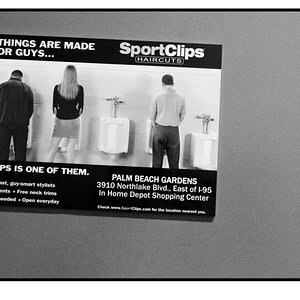A/Ox4
No longer a newbie, moving up!
- Joined
- Nov 3, 2014
- Messages
- 321
- Reaction score
- 191
When you do shoots that you are paid for, do you give every client a contract? I have 3 usage rights agreements available for clients (Personal, Commercial, Editorial) which I give if they ask for them. However they rarely do. My main thought is for advising the client that I retain rights to my images for portfolio usage.









![[No title]](/data/xfmg/thumbnail/42/42350-49b17d39599ec1d51c6d801ea651d3af.jpg?1619740148)


![[No title]](/data/xfmg/thumbnail/38/38739-1ad36a46750bafbe805f009b4453e8be.jpg?1619738703)

![[No title]](/data/xfmg/thumbnail/38/38740-d1a7721cf77e9309a9b4a4829c65fdd4.jpg?1619738704)
![[No title]](/data/xfmg/thumbnail/38/38720-f0f83c1b09a42065eefec8923841d54d.jpg?1619738701)